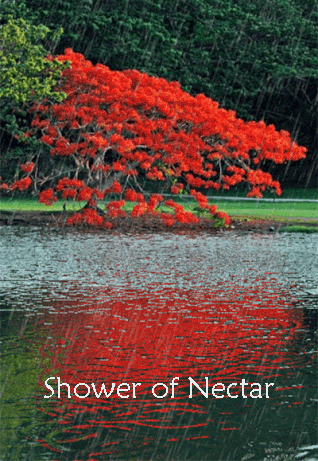Daily nectar of word meaning Day 16
நாள்தோறும் சொற்பொருள் அமிர்தம்
The term ‘shudrā ‘simply means the varnā, representing those who do not adhere to any defined visesha dharmā , either because they do not want to comply or they are not yet ready. And therefore, everyone is a shudrā at birth. This we saw and we must commit to hold on this truth and reflect this understanding in treating everyone as equal. The child changes from shudrā to a new state, only when refinements through education are achieved. When the child leaves the home to reside with the teacher, known as ’gurukulavasā’ , that marks the new beginning for the child, so much so, the child is reborn. This transformation of the child, as the result of the purposefully imparted knowledge by the teacher to lead a civilized life is deemed as a new birth to the child. Therefore, such a person is termed as ’dvija:’ or ‘twice-born’. This concept is there in many cultures too, for example the consecration in Christianity. In those days, majority of the society commits to become a ‘dvija’. Only those who do not commit to become a ‘dvija’ remain as shudrā. Firstly, are those who have the right temperament and aptitude to commit their entire life for studying and imparting the knowledge of the Veda, in the footsteps of the teacher. They are called the ’Brahmin’ mainly because they mostly study and propagate the part of the Veda regarding the rites and duties for leading in the pursuit of purushārtha which is also called as the ‘brahamana’. There is another deeper significance to this term, which we shall see later. What about other pupils? (to be continued – Mee. Rajagopalan – 25/05/2017) (தொடரும் – மீ. ராஜகோபாலன், 25/05/2017)

According to Veda, the teacher who is well versed with the scriptures has the obligation to impart all that he knows to all without any discrimination of where they come from. However, the vast store of knowledge from Veda cannot be learnt in anyone’s life time and the application of Vedic knowledge must be aptly utilized both for the purposes of self-development and the societal care. The teacher therefore selects and imparts relevant sections of the knowledge to the relevant sections of the students in order that needs of the society can be duly fulfilled through division of labour, that is to be shaped by the occupational duties of his graduates.
[Sorry, this is to be loaded]
